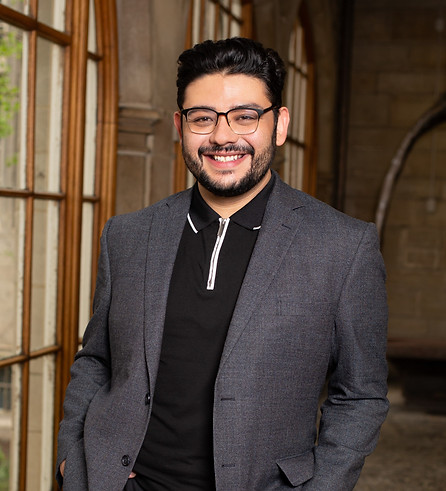Who We Are
Our Mission
The Center for Racial and Disability Justice works to promote the rights and voices of marginalized people, primarily focusing on the intersection of race and disability. At the core of the Center's agenda is the goal of preventing a confluence of racism and ableism from impacting the day-to-day lives of people, especially disabled people of color. We are committed to creating a future that is equitable, just, and values diversity.
Guiding Principles
Our work is grounded in four guiding principles that shape and define our commitment to social justice.
Center Marginalized Voices & Decenter Privilege
We believe in amplifying the voices of those who have been historically marginalized and often silenced. By centering the perspectives and experiences of disabled individuals from diverse backgrounds, we strive to dismantle privilege and foster a more inclusive dialogue. Our commitment to intersectionality recognizes that addressing the unique challenges faced by individuals at the crossroads of race and disability is essential to creating lasting change.
Liberatory & Collective Solidarity
CRDJ's work is collaborative and interdisciplinary, drawing on connections that use justice as a critical lens that bridges law and society. Recognizing that true liberation comes from collective action, we work tirelessly to build bridges between communities and create space where mutual support and understanding thrive. Through our approach to co-design, we aim to break down barriers, challenge injustices, and promote liberation for all.
Tackling the Intersections of Racism & Ableism
We understand that racism and ableism are deeply interconnected, perpetuating cycles of discrimination and exclusion. CRDJ uses intersectionality as a way of looking at social problems at the intersection of racial and disability justice, which allows us to recognize that people have intersectional identities and experience overlapping forms of oppression. Our work focuses on addressing the structural inequalities that stem from the intersection of these types of oppression.
Working Toward Disabled Futures
Our commitment extends beyond the present moment as we actively work toward creating a future that is free of barriers to opportunity and embraces the richness of diversity. We envision a world that recognizes the contributions of disabled people in shaping a more just and equitable society. CRDJ strives to be a catalyst for change, challenging social norms and advocating for a future where the rights and dignity of every individual are upheld and celebrated.
Our Team

Jamelia Morgan (she/her)
Faculty Director
Jamelia Morgan is the founding Faculty Director of the Center for Racial and Disability Justice and a Professor of Law at Northwestern Law. Professor Morgan is an award-winning and acclaimed scholar focusing on issues at the intersection of race, gender, disability, and criminal law and punishment. Her scholarship and teaching examine the development of disability as a legal category in American law, disability and policing, over-criminalization, and the constitutional dimensions of the criminalization of status. She received a B.A. in Political Science and a Master of Arts in Sociology from Stanford University, and her J.D. from Yale Law School.
Kate Caldwell (she/they)
Director of Research & Policy
Dr. Kate Caldwell is the Director of Research & Policy, a role she tackles with gusto as a disabled researcher committed to ensuring policy decisions are informed by marginalized and disenfranchised voices. As a Disability Studies Professor, Kate specialized in interdisciplinary mixed-methods research. She is known for her work on participatory intellectual disability research methods, knowledge translation, and inclusive curriculum and program design. As a leading expert on disability-entrepreneurship, Kate works with policymakers at the Federal, State, and Local levels. She received a B.A. in Psychology from Colby College, a M.A. in Interdisciplinary Social Sciences from the University of Chicago, and a Ph.D. in Disability Studies from UIC.


Jordyn Jensen (she/her)
Community Engagement & Communications Manager
Jordyn Jensen is a disabled leader with expertise spanning urban planning, critical disability studies, special education, and community development. Driven by lived experience, her work focuses on non-punitive crisis response models, the criminalization of disability, and systemic inequities at the intersection of disability, race, and gender. Jordyn holds a B.S. in Applied Learning and Development, an M.Ed. in Special Education, and a master’s portfolio in Critical Disability Studies from The University of Texas at Austin. She is currently pursuing a Ph.D. in Urban Planning & Policy at the University of Illinois Chicago.
Dimitri Nesbitt (he/him)
Civic Planning & Design Manager
Dimitri Nesbitt is a trained urban planner and designer interested in public space management that encourages equitable dialogue on urban issues. Through this, he has helped develop design languages and processes aimed at improving spatial access for minoritized communities. He earned a B.A. in International Studies from the University of Wyoming, a Master of Urban Planning & Policy and Master of City Design from the University of Illinois Chicago.





